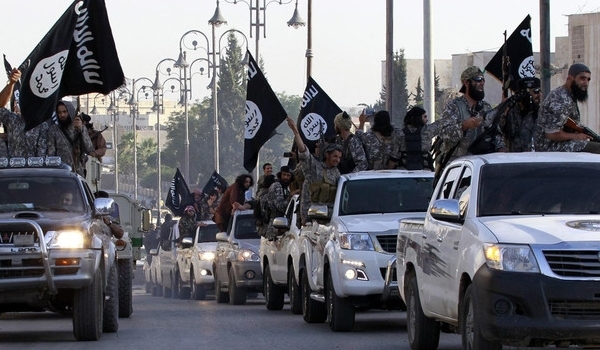
RNA - In a single-urgency bill approved by the Parliament, the lawmakers blasted the US administration and military and intelligence authorities' support for the terrorist groups in the region, warning that they would call on the Judiciary to confiscate their properties. The parliament warned to put the bill into motion if the US approves new sanctions against Iran.
The legislature would call on the government to take reciprocal measures in proportion to the US hostile acts in cooperation with the Supreme National Security Council and report the results to the parliament. It would also increase the budget for the General Staff of the Armed Forces to develop missile activities and the Quds Force of the Islamic Revolution Guards Corps to expand anti-terrorism campaign in the region.
It is wrong to see this just as a reciprocal move in response to the new sanctions against Iran:
Incredibly, after nearly six years of war, the US government continues to fund terrorist groups that, far from being moderate, often subscribe to a Wahhabi ideology long funded and propagated by the Persian Gulf State tyranny Saudi Arabia. The US role in not only turning a blind eye to ISIL’s takeover of vast swaths of northern Syria but also exacerbating the refugee crisis by its callous treatment of refugees in the Mediterranean is often under-reported or perhaps given the severe media crackdown the White House regime initiated after the failed regime change attempt - intentionally overlooked by Western reporters who cover the Syrian conflict from the Persian Gulf.
By now, it should hardly need saying that this is a wakeup call for the international civil society. It should encourage other nations and international human rights groups and agencies to get on board, to come up with similar measures that could help force the US government to put an end to the counterproductive, unaccountable, and immoral CIA “train and equip” program in Syria - for the all-inclusive club of Al-Qaeda, Tahrir al-Sham Hay'at (the Levant Liberation Board also known as the Al-Nusra Front or Fateh al-Sham Front), ISIL, affiliates, associates, and adherents, and in the form of salaries, light arms and ammunition, and large quantities of anti-tank missiles.
Even top US officials agree that the United States needs to do more than wag its finger at “moderate rebel groups” for comingling with Al-Qaeda-aligned Salafist terrorists. For instance, State Department spokesperson John Kirby has already expressed concerns that US-backed Syrian opposition factions such as Ahrar al-Sham have been cohabitating with the Nusra Front. However, Washington has doggedly resisted calls to add the Al-Qaeda collaborators to the UN terrorist list - claiming it would damage the ceasefire. It’s an unwitting US admission about who is really leading the so-called Syrian rebellion and who is really arming various terrorist groups.
The European Union deserves some share of the blame for the current mess as well, triggered by a savage war during which war crimes were routinely committed by Washington, its client states and terrorist associates. Instead of acting to alleviate the suffering through a combination of diplomacy, aid, and generous offers of resettlement, some European Union member states like France and Britain merely have settled on a strategy of antagonizing Tehran and Moscow, which they know full well that are at the forefront of the War on Terror in Iraq and Syria.
These are just some of the unfortunate measures taken by the United States and its cronies in Syria and beyond. The regime changers have also doubled down on their gambit and military adventure in Yemen, where even senior commanders at Central Command, speaking on condition of anonymity, have admitted that the US-backed, Saudi-led invasion “was a bad idea.”
Military sources say a number of regional special forces officers and officers at US Special Operations Command have similarly argued strenuously against supporting the Saudi-led war on the poorest country in the Arab world. They say the target of the invasion, the Ansarullah resistance movement - which has taken over much of Yemen and which Riyadh accuses of being a proxy for Tehran - has been an effective counter to Al-Qaeda and ISIL in the Arabian Peninsula.
Long story short, Iran has picked up on this debate - just like the rest of the international civil society. Iran notes that it is in favor of the Ansarullah resistance movement and the Syrian government, as they have been successful in rolling back ISIL, Al-Qaeda, and their affiliates in Yemen and the Levant - something that thousands of US airstrikes, missile attacks, large numbers of ground troops, and a dozen dodgy allies had failed to accomplish.
Iran further notes that despite the American-Zionist-Wahhabi shenanigans, it has gained international credibility, particularly in Europe, from supporting Iraq’s successful fight against ISIL in Mosul amid US sanctions and restrictions. The West now accepts and perceives favorably Iran’s role in fighting terrorism in Iraq and Syria, with no intension whatsoever to endorse Washington’s counterproductive sanctions and false allegations. This yet confirms the final argument: It is because of Iran’s active role in fighting terrorism that ISIL and other terrorist groups in Iraq and Syria are nearing the end of their lives.
847/940